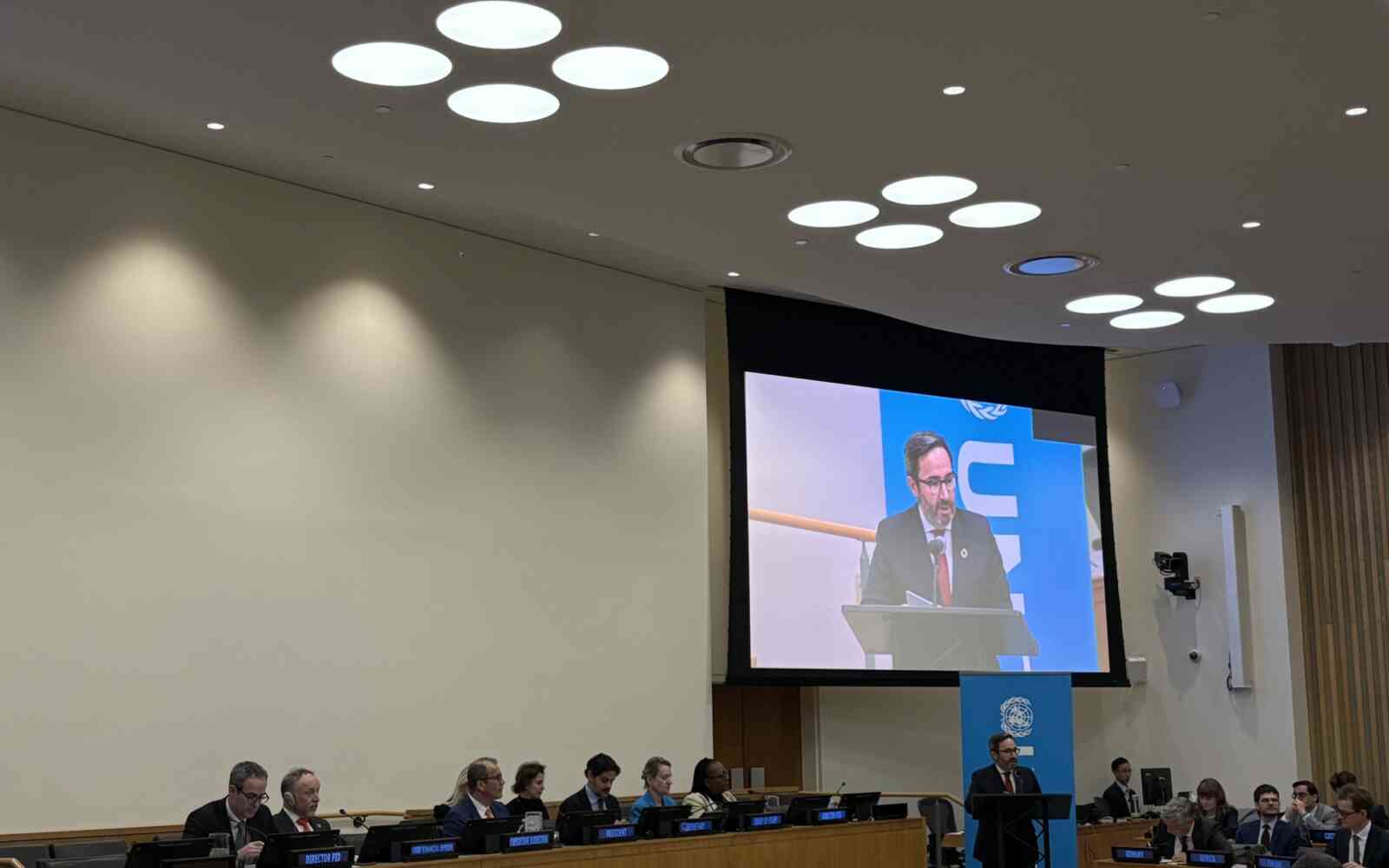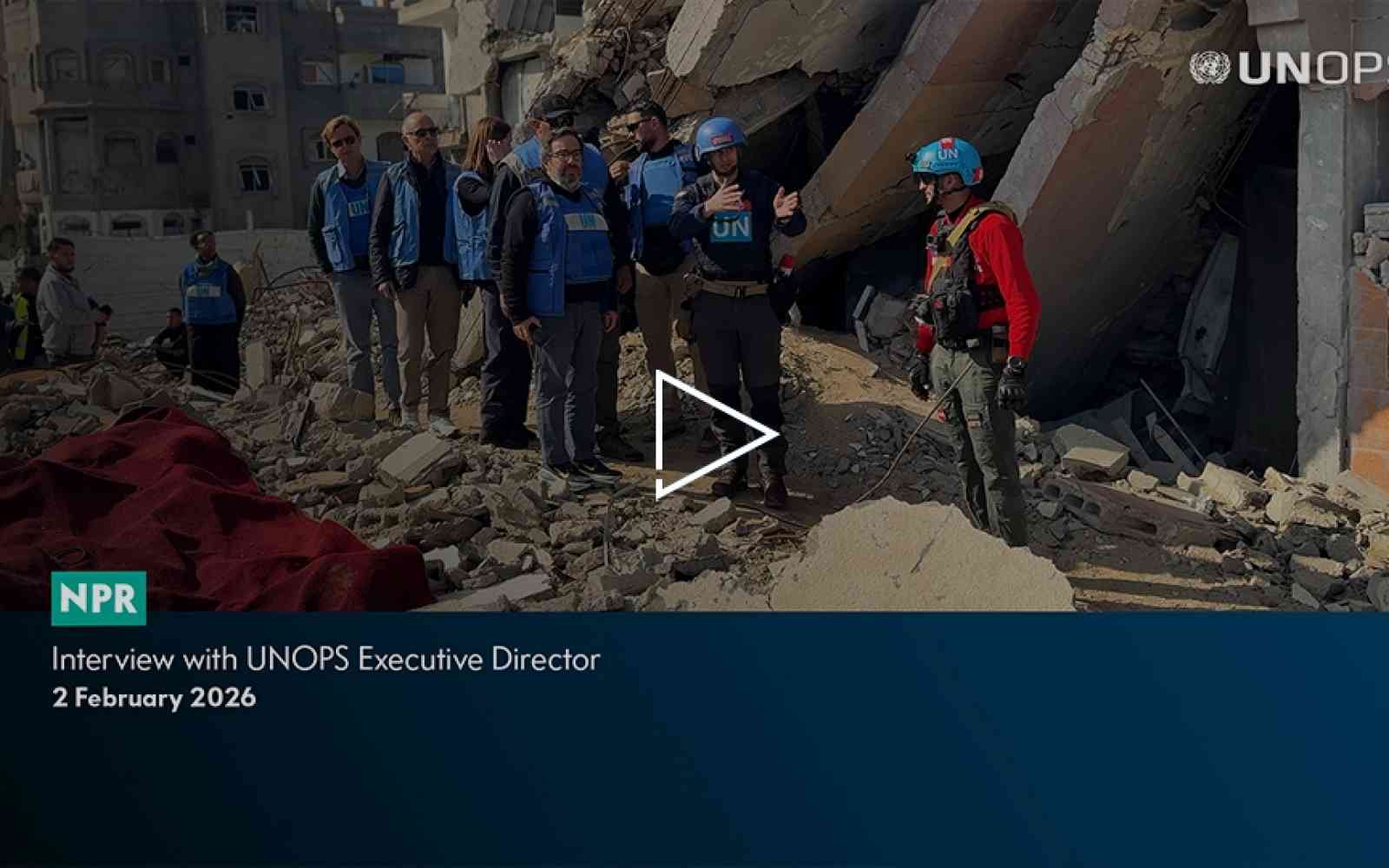The United Nations Office for Project Services (UNOPS)
Third International Conference on Financing for Development
Remarks by Grete Faremo, Under-Secretary-General and Executive Director of UNOPS, at the Third International Conference on Financing for Development (Round Table 6), Addis Ababa, 16 July 2015
[Check against delivery]
Co-Chairs, fellow panellists, participants, delegates, ladies and gentlemen,
Over the past few days we have been talking about policy coherence and enabling environments at a very high level.
I would like to start at the other end. How do we think bottom-up about what builds coherence and enabling environments?
Three months ago, I was in Bamyan province in Afghanistan and met farmers who were so happy that it now took only 20 minutes to get their produce to the market; down from hours previously, thanks to the road we had just built.
As Executive Director of UNOPS I take responsibility for what the organization does to realize UNOPS' mandate, based on the UN values and UN mission. However, our trustworthiness does not rest in promises on paper, but in the coherent quality we are able to
deliver to people in everything we do.
Coherence, in my view, can be compared with what the Greek philosopher Aristotle taught us about 'happiness.' It is not something we can strive for. It is the result of what we do as knowledgeable and experienced practitioners. Coherence is the outcome of what we do. It is precisely this focus on action and delivery of high quality services in procurement, project management and infrastructure that characterizes UNOPS' bottom-up approach to coherence. We focus on results and are transparent about the way in which we do things.
That is how we want to be measured.
To help people in need, we work with governments, donors, private partners on the basis of mutual respect and interest. Irrespective of where the money comes from, it can only be in an environment where we acknowledge the demands and needs of governments as well as our own expertise, that we can co-create a better future.
That will only work, however, if we universally apply the highest quality standards. When asked by a donor country politician why a school that UNOPS built in Afghanistan cost more than other schools in low-income countries, the responsible UNOPS director replied: “if you build a school for your own children in your country, wouldn’t you build the best school possible?”
No more questions were asked ‒ and rightfully so. Children in developing countries have the same right to be educated in light and solid buildings as those in developed countries. That is our starting point. And that is also what coherence is about.
We must demand that ODA funded projects deliver excellence at every step in the development chain: planning, execution, maintenance. I can only speak for UNOPS, but I can say that we are committed to do this by adhering to international standards of quality.
A further element in the bottom-up approach to coherence is standardization. Most infrastructure projects spend years and years on the drawing board, and many die there. From the specifications of health clinics to the steps of realizing an urban metro system,
reinventing the wheel is not necessary. If we are going to have any chance at all to build the infrastructure we need in the coming 15
years, we need to dramatically simplify and standardize designs, project management and execution plans.
All this demands realistic budgets ‒ budgets that reflect accountability. Only those that will be held responsible if a building, a grid or a road collapses will ensure quality, so budgets and accountability must be linked.
Ladies and gentlemen,
We should all come in behind the call for an early realization of the 0.7% for development aid. But we must not leave it at that; this conference is an opportunity to lay the ground work for a new order. We all know that aid – ODA – can cover at best a small part of the funding needs for our sustainable development goals and climate change agenda.
ODA must be used strategically. Often it should simply be used as a catalyst to leverage larger amounts of private sector funding. It must not be wasted on projects where private sector capital can be attracted – and in many cases do the job better.
Traditional roles for development aid will remain, of course: vaccination of children and young adults, efforts to fight AIDS, tuberculosis and malaria and rebuilding after disasters will continue to need significant flows of aid money.
However, we must reform development assistance. We need smart aid ‒ aid that facilitates, catalyses and supports – not aid that duplicates or replaces.
Yet, we should not be naïve. We are aware that private sector capital tends to gravitate towards the lowest risk and the easiest return. ODA’s challenge is therefore to address the factors that so far have prevented private capital from investing in infrastructure and services that also serve the poorest and those furthest away from the centre:
- reducing risk through first risk guarantees, and other instruments;
- assist governments in putting adequate planning, regulation and policies in place, including robust tax revenue systems;
- help empower governments at every step, from negotiating shrewdly with private sector investors, all the way to enforcing the laws, rules and regulations;
- invest not only in primary education, but also in secondary and tertiary education, centres of innovation, research and technology development.
In such a ‘new order’ the UN system must focus its role. I do believe that the UN will have a very strong role to play but only if it sticks to its mandate and its strengths. If the UN tries to compete with other sectors of development and be all things to all people, it will lose credibility and risk not adding value.
But the UN system does have an important and evolving role to play in realizing the upcoming SDGs:
- as an honest broker, a convener of private sector, bilateral donors and developing country governments into alliances for specific projects
- as an executer with integrity and vast experience in some of the most difficult country settings possible;
- but also as someone who represents the common values of the UN mandate in the process when compromises are made as we turn idealistic ideas into realistic action.
Ladies and gentlemen,
In closing, I would like to share four strong convictions I am taking away from our discussions over the past few days:
First, results matter. Therefore, coherence must be built through action as much as being imposed from the top down.
Second, excellence – doing a good job at every step – is not a nice-to-have. It is what we owe our future generations.
Third, ODA must evolve to find its leveraging and catalysing role. It is essential that ODA is used strategically so it is not wasted on work that private or domestic funding can do better.
The UN has an essential role to play in ensuring that the poorest, most vulnerable and furthest away are reached with essential services, infrastructure and safety nets. So therefore, my fourth take-away is: Leadership requires setting an example, and I am prepared to do so at UNOPS.
Thank you.










